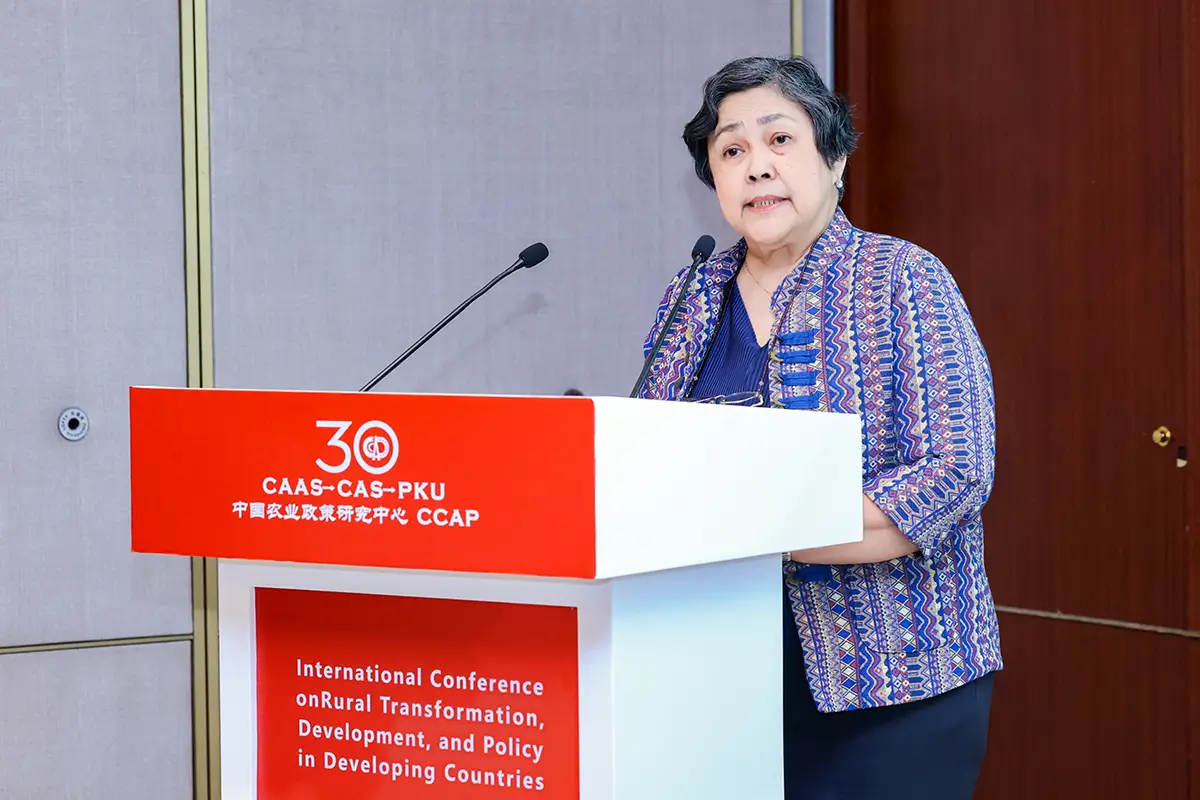BEIJING, China—The Southeast Asian Regional Center for Graduate Study and Research in Agriculture (SEARCA) joined global partners in celebrating the 30th anniversary of the China Center for Agricultural Policy (CCAP) held on 17–19 October 2025, underscoring SEARCA's commitment to regional collaboration and policy innovation in agricultural and rural development.
Hosted at Peking University, the celebration brought together leading institutions and experts to reflect on CCAP's contributions as a premier agricultural policy think tank. With strong linkages to key decision-making bodies in China and international organizations, CCAP has played a pivotal role in shaping agricultural and rural development strategies across Asia.
Dr. Mercedita Sombilla, SEARCA Center Director, participated in the anniversary activities and the CCAP Advisory Committee Meeting, reaffirming SEARCA's intent to renew and deepen its partnership with CCAP. The collaboration builds on their long history of joint research in agricultural economics and rural transformation.
As part of the program, Dr. Sombilla presented findings from a study titled "Insights into the Structural Challenges of Philippine Agricultural Transformation through Analysis of Production Growth Trends" at the International Conference on Rural Transformation, Development, and Policy in Developing Countries.
Focusing on rice and corn—two staple crops that reflect the structural health and policy responsiveness of Philippine agriculture the study drew on Philippine Statistics Authority data spanning 2000–2024. It found that while production gains were achieved through technology and policy support, growth rates eventually decelerated. A quadratic trend analysis suggested that prevailing farming practices may have reached their limits, signaling the need for structural reforms and innovation.
Sombilla also discussed a breakpoint analysis that identified key shifts in production trends that align with policy transitions and climate events. She emphasized the importance of distinguishing between temporary constraints and entrenched structural issues, a critical step in crafting effective, evidence-based agricultural policies.
In her concluding remarks, Sombilla called for a strategic shift from incremental fixes to transformative reforms, advocating for investments in irrigation, mechanization, climate-resilient infrastructure, and stronger research-to-farm linkages. She also recommended promoting cooperative farming, enhancing value chains, and establishing a national dashboard for data-driven governance.
SEARCA's active participation in the CCAP's milestone event reflects its enduring commitment to regional collaboration, knowledge co-creation, and transformative agricultural policy—particularly in advancing food systems resilience and inclusive innovation across Southeast Asia.
